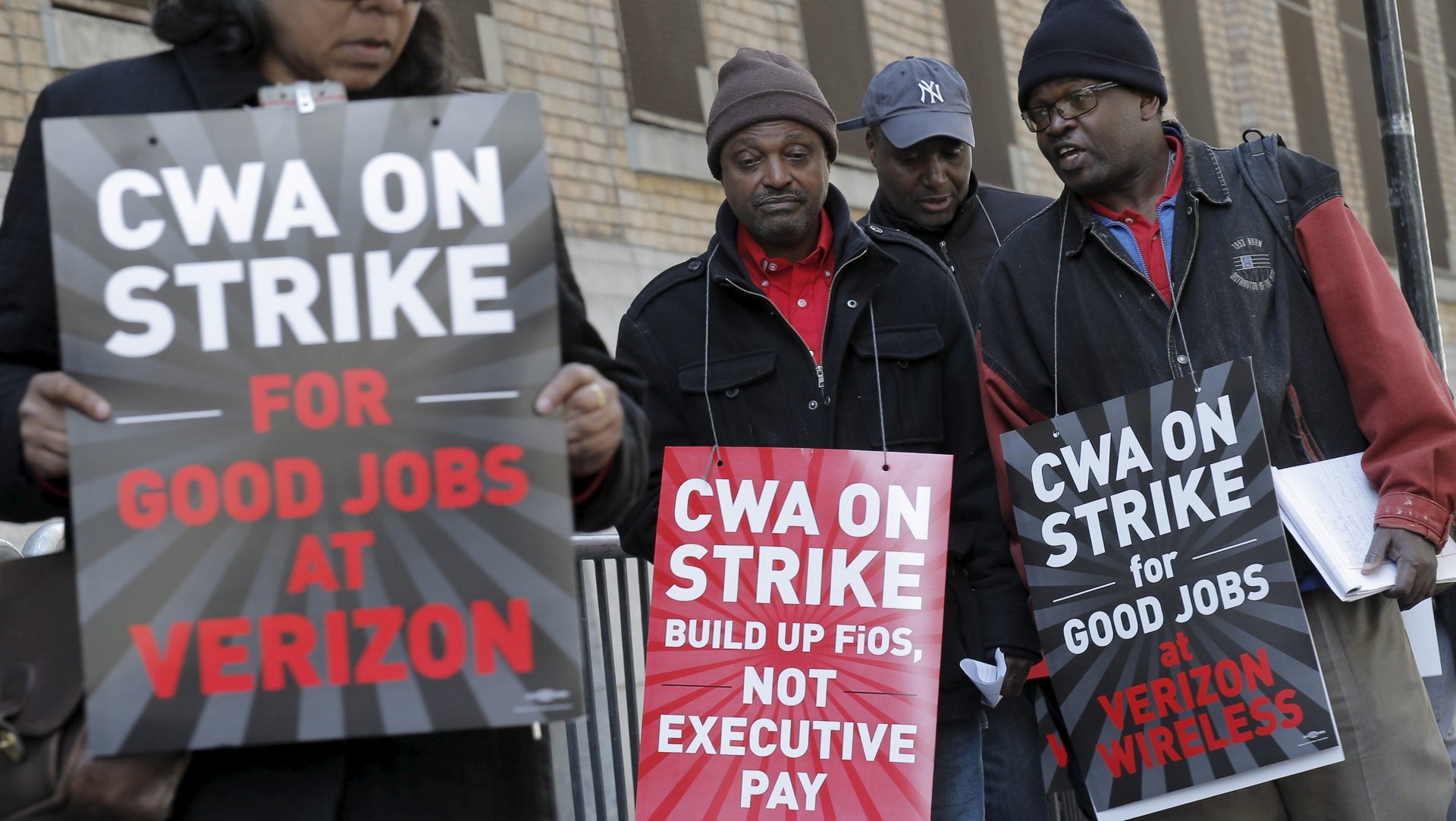Verizon is sending lawyers to climb telephone poles when its technicians go on strike
When you call the Verizon customer service line these days, a nice automaton’s voice tells you that because Verizon workers are on strike, wait times are longer than normal. Sure enough, it took me a very long time to order FiOS service at my new apartment, but I managed to, astonishingly, get an installation date for the next day.


When you call the Verizon customer service line these days, a nice automaton’s voice tells you that because Verizon workers are on strike, wait times are longer than normal. Sure enough, it took me a very long time to order FiOS service at my new apartment, but I managed to, astonishingly, get an installation date for the next day.
Several hours into the installation, one of the technicians casually dropped that he was actually a programmer, an IT specialist who normally works at an office in a different part of the country, and his partner, who climbed the telephone pole in my backyard, was a lawyer, a lobbyist for Verizon. Both are in their fifties. The company dispatches them as substitutes for some of the nearly 40,000 unionized Verizon workers who have been on strike since mid-April.
The most contentious issues for the protesting employees include sending call-center jobs offshore, relocating workers away from home for long periods of time, and healthcare coverage. Negotiations over contracts with the Communications Workers of America (CWA) and International Brotherhood of Electrical Workers (IBEW) have been going on for 10 months. As of early May, both sides appeared to have dug in on their positions.
During such walkouts, Verizon flies in non-union office workers from all across the company and the country to do necessary repairs and installations. Performing these technical, and often very physical tasks, are human resources and public relations specialists, marketers, accountants, lawyers – in addition to engineers or other employees with technical backgrounds. For this strike, the company trained between 15-20,000 employees, according to Verizon. It also hired outside help.
The office workers go through a week or two-week training at Verizon’s facility in Virginia, where they learn how to handle fiber optic cables, troubleshoot equipment and, yes, climb telephone poles.
“Are they going to be as good as our experienced technicians that are normally out there who have been doing this for years? No, of course not,” said Ray McConville, a Verizon spokesperson. ”But given the circumstances we think that they are doing a great job.” He underlined that Verizon is confident in its ability to service its clients during the strike. It turns out, however, that I was lucky getting a new FIOS set-up done so quickly. McConville said the company is focusing on repairs for existing customers, and performing fewer installations than usual.
“Our technicians are best in the business. We’re looking to pay them accordingly in these negotiations. Hopefully the union leaders can step up and start bargaining seriously with us,” he said.
The CWA union says substitutes for its workers just can’t do the job. “Our members do very technical jobs and somebody who has been sitting behind a desk, being an accountant, is just not able to do this outside, technical work,” said Candice Johnson, a CWA spokesperson, citing service issues and outages in the affected area. ”Customers deserve better,” she said.